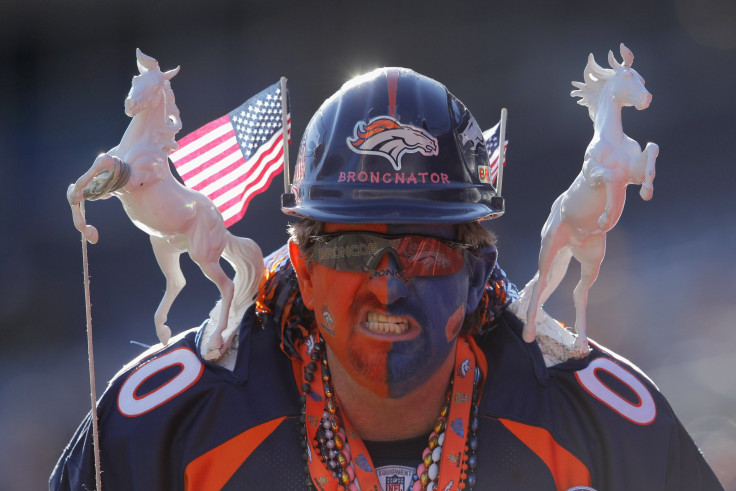Fantasy Football 2014: Benefits Of Office Pool Include Networking, Team Building

For years, denizens of the business world have used golf as a way to network with prospective clients, mingle with co-workers and close important deals. Now, the exponential rise in the popularity of office fantasy football leagues has provided individuals who have an aversion to the fairway with a virtual means of rubbing elbows with office mates and clients.
Competition among fantasy sports participants has never been stronger. The latest statistics of the Fantasy Sports Trade Association indicate about 31 million working-age Americans play fantasy sports, spending around $15 billion in the process, Forbes reported. Participating males outnumber females by a 4-1 ratio, the association figures suggest.
Golf and business are inexorably linked: Students in business school are told the development of a passable golf swing is crucial to the development of their careers. In fact, a 2008 study carried out by researchers at Pompeu Fabra University in Barcelona, Spain, found top executives who do not regularly play golf earn 17 percent less per year than executives who do (PDF).
Fantasy football hasn’t yet reached the point where participation can have a discernible impact on salary. However, John A. Challenger, CEO of the Chicago-based outplacement consultancy firm Challenger, Gray & Christmas Inc., believes virtual contests are a great way to foster camaraderie within an office.
“It’s a little different than [golf],” Challenger said in an interview. “You’re not sitting alone with someone for four hours talking and deals come up. It’s more like, this is something that you relate around. It’s more a way that people come together. They have similar interests. When you find someone who you connect with around fantasy football, that’s a way of building a rapport.”
And there's no physical skill needed. Participation in a fantasy football league doesn’t require the development of a 300-yard drive or the ability to putt.
“I have never been around an office in which golf was widely discussed,” said Matthew Bush, a management consultant at the New York-based Capco unit of Fidelity National Information Services (NYSE:FIS) and an avid fantasy football player. “Fantasy football allows easy access as all you need is a computer and an account, while many people have not played golf before or do not watch regularly.”
Fantasy football is a crucial aspect of the office’s social atmosphere, particularly in the development of a comfort level between co-workers, Bush said. “Fantasy football is one of the main talking points on a weekly basis throughout football season. I think, in general, fantasy is a social thing, but it does tie in nicely with business relationships. For example, the camaraderie fostered through fantasy allows people to be more comfortable with each other and increases the communication within the employees and the team,” he added.
Aside from their potential monetary cost, office fantasy football leagues demand a large time commitment from their participants -- often during office hours. Employers are expected to lose more than $13 billion worth of productivity from their employees during the 2014 football season, according to a recent analysis by Challenger, Gray & Christmas.
Despite that expected loss, Challenger said he believes companies should “encourage” the existence of such leagues. “No question that workers are taking time away to work on their fantasy football teams and do mock drafts and take a look at who’s on the waiver wire. The positives are that you build a rapport. I do think there’s a hit on productivity, but I think it’s worth the hit,” he said. “It’s a simple, easy way to bring people together.”
Self-control is the key to preventing a fantasy league from interfering with work-related responsibilities, according to Bush. “I don’t think it has a negative effect on productivity as long as the employees are intelligent enough to know when to stop such conversations before it becomes an issue,” he said.
For some businesses, the creation of a friendly, communicative office environment may be just one fantasy football draft away. More important, nobody will have to worry about shanking a drive into the woods in front of the boss.
© Copyright IBTimes 2024. All rights reserved.












